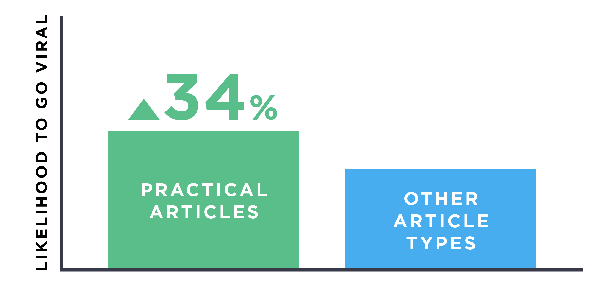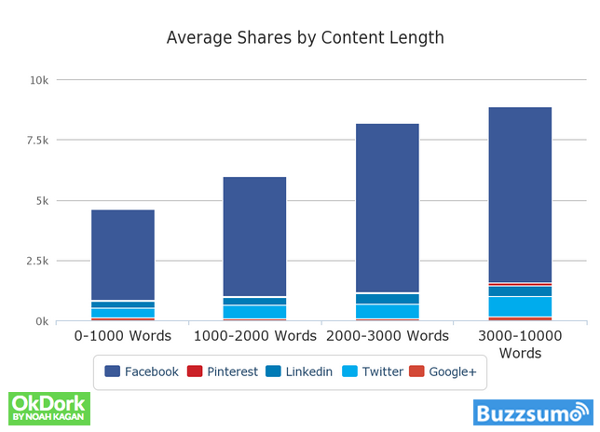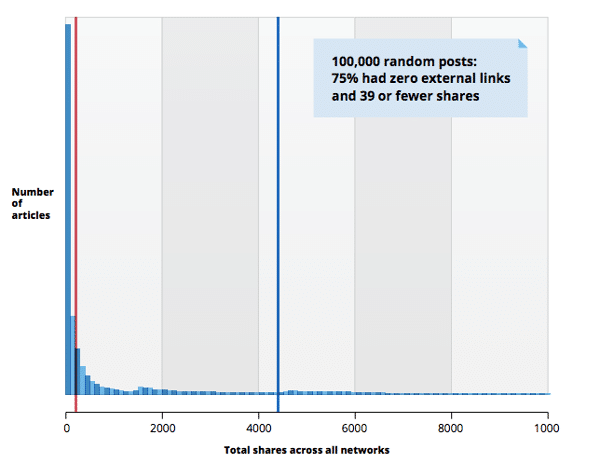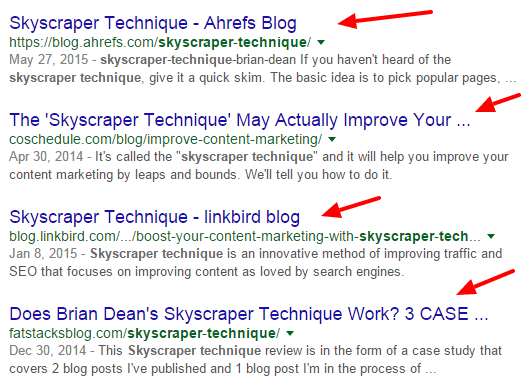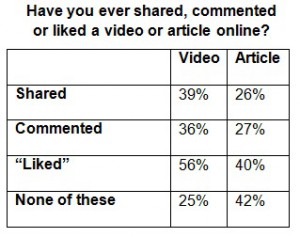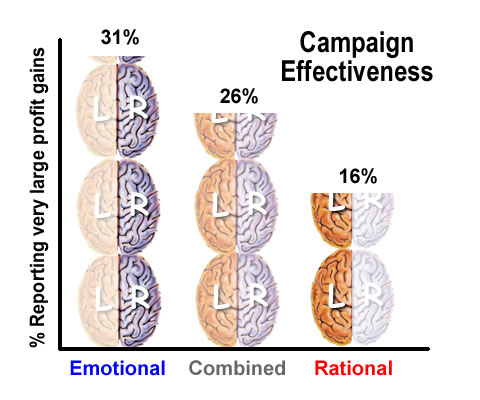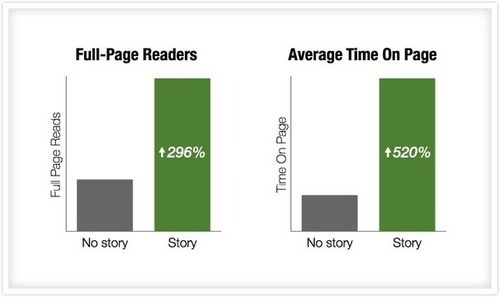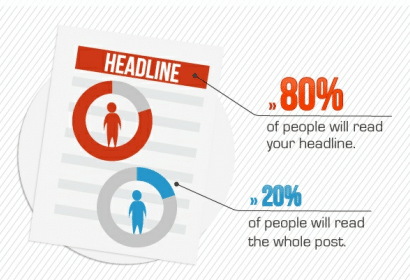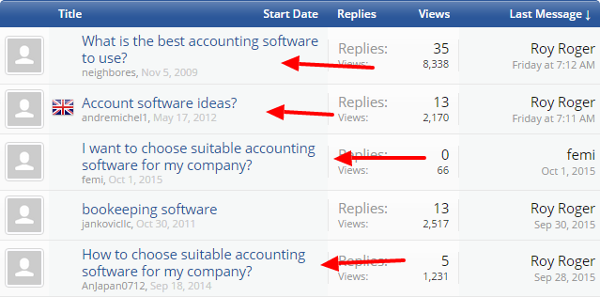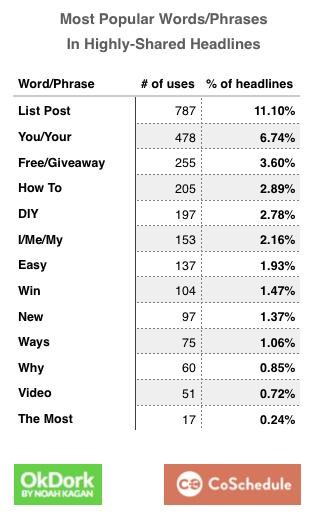What do the common cold and viral content have in common? Not much, right?! But what if I told you they’re more alike than you think… How so? They’re both highly contagious. Let me explain: Viral content catches like a cold, spreading across the internet via social networks like Twitter, Facebook, and Tumblr. And as it does so? It infects every user
Published on October 2, 2015

What do the common cold and viral content have in common? Not much, right?!
But what if I told you they’re more alike than you think… How so? They’re both highly contagious.
Let me explain: Viral content catches like a cold, spreading across the internet via social networks like Twitter, Facebook, and Tumblr.
And as it does so? It infects every user it comes in contact with and gets your content shared! In turn driving views, backlinks and traffic to your website, which helps your inbound marketing and develop your SEO.
So we know viral content is the kind any business would love to create. But the question remains:
How?
Far from requiring a laboratory of scientists, creating viral content that gets shared is as simple as including some killer ‘Content Contagions’: scientifically proven strategies that you can use right now to maximise the viral, contagious nature of your content.
The kind of viral content that drives even the most resilient of readers to share!
1Practicality
Like the hordes that roam AMC’s The Walking Dead, the internet is bursting with content.
But here’s the hard truth of the matter:
It’s all largely useless!
And if you’re a regular browser of the internet, you’ll agree: finding meaningful content can be difficult.
If your business is able to create content that bucks this trend and provides value to readers? You’re already setting yourself apart from the masses.
To do this?
You just need to be practical!
And the science doesn’t lie:
In a study by Dr. Jonah Berger and Katherine L. Milkman, it was found that practical content is 34% more likely to go viral.
Image via backlinko.com
But why?
That’s a great question!
Because while they may not hunger for brains! your audience is starved for worthwhile, practical content. The kind of content they like to share not only because it’s useful for them, but also worthwhile for friends and family, too!
Looking for ways to infect your content with practicality? Try these:
Offer Guidance
One of the major reasons users search online? They’re looking for solutions to their problems.
These could include:
- How to fix a leaking tap.
- How to change a lightbulb.
- How long it takes to cook 2 minute noodles…
By breaking your content down into clear steps you’ll be providing approachable, actionable content. The kind of content that provides a practical solution to a user’s problem, and shows them how best to use your content.
And once they’ve used your content to get results? They’re far more likely to share!
Tip: Forums or Q&A sites relating to your niche are a great source of questions your audience are asking.
Include Stats & Figures
There’s one thing you need to know about the modern online user:
98% of them don’t trust what they read online.
Why? Think of it this way:
It’s day one of the post-apocalypse. You stumble upon a stranger who, despite their happy-go-lucky story, has no way to prove their friendly intentions.
So how likely are you to trust them?
Highly unlikely!
And the same can be said of your content.
By backing up any claims you make with facts, stats and figures, you can begin to build trust with your audience.
And a reader who trusts? They’re a reader that shares!
Involve Leaders & Influencers From Within Your Niche
There’s no better way to build trust than by associating your content with those within your niche who have already done so. By including these people in your content, you’ll quickly build trust and add practical value.
This could be in the form of:
- Quotes or citations from posts they’ve written.
- A specific comment obtained for your new piece of content.
Better still?
Reaching out to the people you’ve mentioned is a perfect way to kickstart the sharing of your content.
Who knows, these people may well be your ‘Patient Zero’ when it comes to your content going viral!
2 Content Length
There’s a reason the undead hordes of a horror flick invoke such a dramatic gasp from the audience:
Sheer size.
And the same goes for contagious, viral content.
The bigger? The better!
But why is this?
Dr. Berger and Milkman also explored this question in their 2011 study on viral content. And what they found may surprise you:
They found that lengthier content invokes a sense of awe in readers.
And what is awe?
It’s a positive emotion!
An emotion that makes this content far more likely to go viral when compared to shorter content.
And the SEO experts agree.
Buzzsumo recently analysed over 100 million articles, finding that the longer the article, the more likely it is to be shared. As their graph below highlights:
So when it comes to your content? Get typing!
3 Memorability
It’s common knowledge that the majority of the cast of a horror flick won’t see the end credits.
So by the time the credits do roll, which are the ones you remember?
More often than not they’re the ones that had:
- A funny line of dialog.
- A defining feature or characteristic.
- An interesting visual design.
In the same way, it’s also common knowledge that the majority of the content posted online isn’t shared.
In fact, as you can see from their graph below, MOZ found that of the 100,000 random articles they examined, 75% had zero external links. And 39 or fewer shares!
The lesson here?
If a user doesn’t remember you, then they’re certainly not going to share you in a tweet or a blog post later on!
So by making memorable content, you’ll increase your content’s contagious qualities.
Looking for ways to ensure your content is remembered? Try these:
Create Proprietary Techniques & Strategies
So your content provides practical value.
That’s great!
But how will your audience remember that it came from you?
What do I mean by this?
Here’s an example:
Brian Dean of Backlinko recently shared his thoughts on unlocking the full potential of the content websites create. But rather than simply compiling these into a list, Brian took one extra step.
What was this?
He gave his ideas a name:
A quick Google search for the term will show you just how effective this method can be:
As you can see, this technique is now known across the internet, and constantly referred to by those within the SEO industry. Just as we’re doing now!
And the reason why this happened?
It’s memorable!
By giving your own ideas, techniques or strategies a name, you’ll ensure your audience remembers where they came from.
Be Visual
Humans are highly visual beings.
In fact, 65% of us are visual learners.

By placing an importance on the visual impact of your content, you can make it that much more memorable.
And the stats don’t lie!
- Skyword found that content that includes images receives 94% more views than content without.
- Including images when sharing your content is crucial too! A recent study by Buffer showed Tweets with images received 150% more RTs.
- MOZ also found that content that includes video receives as much as 3x as many inbound linking domains (ILDs).
- Don’t believe it? A recent survey showed 39% of users share a video compared to just 26% for written articles.
Image via digitalstrategyconsulting.com
- As for Infographics? They’re 30 times more likely to be viewed compared to regular text articles.
- Need more convincing? Sites that use Infographics grow 12% faster than those that don’t.
4 Emotional
Think back to the films you’ve seen over the last year.
Which ones spring to mind?
Chances are they’re the ones with scenes that elicited an emotional response.
- Sadness?
- Excitement?
- Awe?
- …or in the case of a Pixar film? All three!
What does this have to do with your content?
Well, it’s been scientifically proven that content that elicits an emotional response performs almost twice as well as purely rational content. As Bufferapp shows in their illustration below:
Looking for that emotional touch? Try these:
- Awe
Remarkable! Amazing! Or just downright inspiring. Content that communicates a sense of awe works wonders for the contagious nature of your content. - Surprise
A new fact to share? Some surprising results you’ve discovered! Content that goes against reader’s’ expectations, challenges their ideas of explores a new or exciting way to do things is the perfect candidate to go viral. - Controversy
‘Controversy?‘ you ask, ‘But I thought positive emotions were the contagious content go-to?‘And you’d be right!But while controversy for controversy’s sake is a definite no-go, using facts, figures or stats to question preexisting notions, ideas or ways of doing things can create the kind of debate that can spread your content like no other.
5 Social Currency
As a content creator, there’s one weakness in the your audience’s social-sharing immune system that there’s no vaccine for:
The need to look good.
Let me explain:
Social networks are as much about perception as they are the people who use them. So if someone finds content that:
- Supports their view
- Increases their standing
- Makes them look knowledgeable
Then they’re more likely to share.
And by now you know why:
Because it makes them look good.
By creating content that talks about the issues, topics and subjects that are important to your audience? You’ll be creating content that makes them look good, and in turn drive them to share.
6 Story Telling
In addition to writing content that fits the expectation of visitors, the importance of storytelling in spreading your content can’t be overstated.
How so?
Let me give you an example:
Earlier in this article, I used the example of a horror flick to explain how memorable content is shared more often.
By simply stating this as plain, boring facts, you may well have forgotten it.
But by framing it within the context of a story?
You’re far more likely to remember the point being made!
In fact, Bufferapp found that using storytelling techniques within your content can increase its readers by as much as 300%, and boost the on-page time spent by these readers by a staggering 520%!
So while we’re we’re not asking you to be the next George R. R. Martin, by using storytelling techniques within your content, it will be far more memorable.
And what have we learned about memorable content?
It gets shared.
7 Topical
Think about a few of your favourite blogs. What is it that they write about?
That film blog you like? It’s full of Hollywood gossip and new film announcements.
That photography blog you frequent? Overflowing with tips on taking the best holiday snaps.
Now imagine this scenario:
What if these two blogs switched content?
Sounds crazy, right?
That would be like the Found blog writing about ways to prepare a roast dinner!
While yes, everyone might love a good roast. It isn’t a topic those looking for SEO & Content Marketing advice are interested in.
So is it content this reader would share?
Unlikely!
The lesson here?
Your content won’t go viral if your audience isn’t interested!
So what should you do?
A crucial ingredient of content marketing, put free tools like Buzzsumo, Alltop and MOZ Open Site Explorer through their paces to find the topics that resonate with your audience.
By doing so you’ll create content your audience are interested in and want to share.
8 Headlines
The following fact may well surprise you:
Some 80% of users read an article’s heading.
No big deal, right?
But there’s a twist:
Only 20% of users ever read past this point.
Image via writtent.com
The lesson here is clear: Writing quality headlines is crucial to creating contagious content that gets shared.
So what kinds of headlines should you be writing?
A survey by MOZ found that 36% of respondents preferred headlines that included numbers. That’s a full 15% more than reader-addressing headlines. And a whopping 19% more than those that included ‘How To‘.
So we know that headlines that include numbers are more appealing to readers, but there are even more ways to supercharge your headlines to achieve the maximum possible shares:
Include Odd Numbers
Headlines that include odd numbers have a 20% higher click through rate (CTR) than those with even numbers!
Answer Your Readers’ Questions
We’ve already discussed how most users turn to Google when looking for answers.
We’ve also talked about how answering these questions with your content can be a great way to stay relevant.
So if your content does just this? Use this to your advantage in your headlines!
How do you do this?
It’s easy!
- Check out Q&A sites like Quora or Stack Exchange for the most prevalent questions related to your niche. As seen below with a search for ‘Accounting Software‘.
- Similarly, browse Forums dedicated to your niche. There’s no better way to find the exact wording of the questions users are asking than hearing it from them directly! Below? The most recent topics from an ‘Accounting‘ forum.
Tip: You can quickly and easily find Forums in your niche by using a few of the following search queries in Google:
[Keyword] + inurl:”/forums/”
[Keyword] + “discussion board”
- Don’t forget your keywords! Answering your readers’ questions is the perfect time to make use of long-tail keywords within your headlines. These are usually longer, content-focused terms that carry lucrative search traffic!
- Write your headline around how your killer piece of content will answer this question.‘The Best Accounting Software? Your 3 Point Checklist To Making Your Choice’
‘What Is The Best Accounting Software? We List The Top 5 For Your Small Business!”
Tip: Keep the suspense! Your headline is supposed to invite users to read further, not provide them with their answer straight-up!
Choose Your Words Carefully
In a study of more than 1 million headlines of highly shared content, CoSchedule found that the words you use within a headline have a big impact on the number of shares that content receives.
Their break-down of this below shows that words like ‘List Post‘, ‘How To‘ and ‘Video‘ all made the cut:
This data shows us two very interesting things:
- The words you use within your headline are vital in determining its potential for going viral.
- The content type is just as important as the topic itself. List posts, How To posts and videos have all been shown to achieve more shares. So when it comes to deciding what form the content that follows that headline takes, choose wisely.
9 Timing
Did you know:
- Content posted on Tuesdays has been found to be more likely to go viral?
- Most users read blogs in the morning?
- That social shares are the highest on Thursdays between 9-10AM EST?
In fact, when you publish your content can have a massive impact on its views, shares and traffic. Time it just right, and your contagious content will be spreading in no time.
Bringing It All Together
And there you have it! 9 killer Content Contagions that are proven to infect readers with that irresistible urge to share.
So the next time you’re in the content lab? Remember to write long-form content, that’s both practical and lingers long after readers have moved on. Be sure to add a drop or two of emotion – maniacal cackling optional – too, and don’t forget to slap a terrific title on that test tube.
And by the time you’re done? You’ll have a strain of contagious content that’ll be near unstoppable!
Do you have any content contagions of your own? Any strategies you’ve used in the past to give your content that contagious quality? We’d love to hear from you in the comments below!


